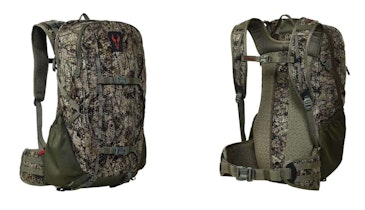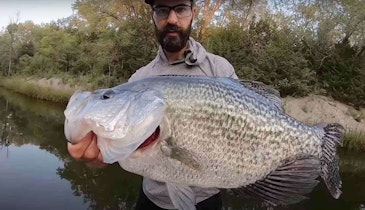Predator hunting’s future is in our hands. But who are we, really, and what can we do? As predator hunters, we are who and what we are and darned proud of it.
It’s amazing what we see when we look in the mirror. It can show things that none of us sees from within. We might be heroes in our minds’ eyes. But the naked truth can be quite deflating. For extreme predator hunters, self-analysis doesn’t come naturally. The logical first question is: Just who are we?
In many ways, we’re classic rugged individualists — loners in that we spend significant time in the wilds, alone or with one or two hunting buddies. Even when we’re hunting with someone else, there is comparatively little social interaction because the act of predator hunting calls for minimal extraneous noise and movement.
We talk to animals. Ironically, often we are more fluent in the effects of animal noises such as combinations of squeals and peeps than we are in verbally relaying our realities to other humans. We don’t have any “spare” time because we spend every available moment thinking about hunting or hunting. Our spouses remind us about this continually because “honey do” projects around the house are routinely ignored because we’re out and about.
Hunting equipment and off-road transportation consume all our expendable income and often cut into funds that really should be spent on what others consider to be basics. We often spend more on our off-road trucks, snowmobiles or mountain bikes than we do for payments on our houses. For the purists among us, a job is nothing more than a hunting support mechanism.
Softhead subversives might insist that we are obsessed, but that’s not true. The fact is, we are predators ourselves. We are what we hunt. Some folks chuckle when I suggest that it is in our DNA. But I firmly believe that it’s true. If we were judged by the criteria used by academia to define a “class” in society, we are in a class of our own. Hence, we are a minority class, which, by virtue of us being in that class because of DNA, should be a protected class. I am not suggesting we be given government handouts like the losers on the dole who otherwise would fall through the cracks, but I am musing that we should be recognized and accommodated accordingly.
So, who are we? We blaze our own trails through life despite social and economic pressures against us. Because we are part of the circle of life in the wild and not merely outdoor voyeurs, we are not simply close to nature, but a part of it. It also is important to understand who we are not lest we become an extinct class at the unforgiving hands of anti-hunters.
Antis are herd creatures who band together instinctively. Political and legal activism comes naturally to them. Their numbers are rife with social parasites, who are on the public dole and have nothing better to do than stick their noses into others’ activities and lobby endlessly to put an end to things they don’t like. By definition, as “antis” they are not “for” anything. They are anti-human.
While we are in the wilds hunting, the antis are in the chambers of elected governing bodies and courts, arguing that what we do should be outlawed. For many of us, showing up at public hearings not only is unlikely, but easily could be counter-productive because we lack the slippery, sleaziness of the lounge lizards who slither effectively through such processes. Or, put another way, our naivete in the social proprieties of such things could result in our taking the bait of the antis and find us ignorantly defeating our own cause — getting in our own way.
If banding together in social settings is foreign to us individually, yet necessary to defend our existence, what can we do? Call in the cavalry. At the local and state levels, there are scores, if not hundreds, of predator-hunting-specific organizations that focus on issues in their areas. There are too many to list here, but it is not difficult to find them and support them. Just ask around at wherever hunting supplies are sold or surf the net.
At the national and international levels, there is the National Rifle Association and Safari Club International. These organizations have their own lobbyists in state legislatures and in Congress, and they have their own legal staffs who represent hunting in the courts. Some predator hunters become active in these organizations and give their time and toil to help the cause. But, as individualists, many predator hunters just don’t think and act that way.
This doesn’t need to be a problem because the single most basic way to help is to become members of these organizations so they have the combined numbers that can have an impact in official decisions, both legislatively and legally. It doesn’t hurt to chip in now and then for specific campaigns. But the simple act of joining goes a long way. And we all can afford it if we approach the challenge as being our personal contribution to assuring a future for our passions.
Think of it as form of tithing. When you buy hunting gear, take a couple of extra dollars and put them into a Mason jar squirreled away under that pile of crumpled camo clothing in the back corner of the closet. When you fuel-up for a hunt, take a couple more dollars and then later put them into the jar. Before long, the jar turns into a personal war chest to be used to help save hunting.
We can have it all, but to do so, we must understand who we are and what our strengths and weaknesses are. Then it is easier to play to our strengths and win. On the flip side, it is certain that the antis will play to our weaknesses and predate on us. In the end, antis are social predators while we are natural predators. If we don’t gang-up, our hunts will be picked off, one at a time. Predator hunting’s destiny, in which we can be either predator or prey, is in our hands. The future belongs to those who act effectively.






